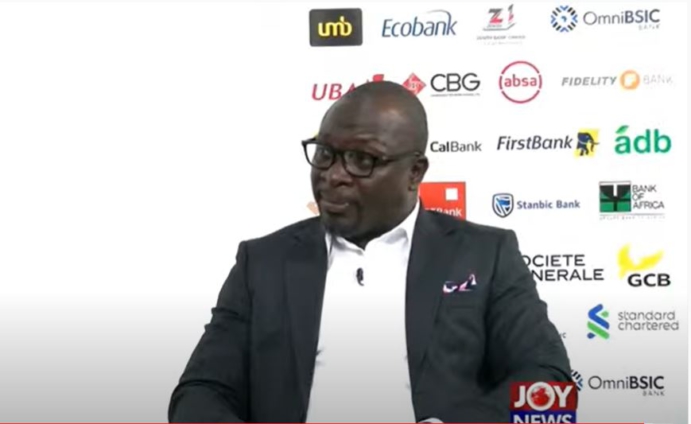The Chief Executive of the Ghana Association of Banks (GAB), John Awuah, has said that there must a direct link between reduction in interest rates and improved economic environment.
He cautioned that banks cannot be forced to bring interest rates down when the economic fundamentals do not support such moves.
“Instances where the economy had turned around with some variables improving, the banks did moved quickly to review their rates. We should not try and get to that era where interest rates are forced down when it is not backed by the economic fundamentals”, he warned.
Mr. Awauh disclosed this on PM EXPRESS BUSINESS EDITION with host George Wiafe.
He argued that banks have always responded by reducing interest rates any time other macro-economic indicators improve.
“There have been several examples in the past which showed that when all these factors that influence interest rates drop, the banks have gone ahead to revise their rates”, he maintained.
Policy rate reduction and inflation rate
The Monetary Policy Committee at its first meeting on January 23, 2023, cut the policy rate by 100 basis points to 29.0%. The inflation rate since July 2023 witnessed some significant drop until that marginal spike in January 2024.
Recalling some instances where the banks have reduced interest rates, Mr. Awuah pointed out that in times when the indicators have improved, financial institutions have used variable rates on loans.
“You should check with anyone who secured a facility at a variable rate and you realise that commercial banks in question have change their rates”, he added.
High interest rates and impact on commercial banks
The Bank of Ghana pegged average interest rates by the end of December 2023 at around 30.19%, from 25.51% in December 2022.
However, some analysts have described the rate as high posing financial challenges to businesses.
Responding to assertions that banks profit from high interest rates, Mr. Awuah argued that the high interest rates rather lead to high default rates.
“I don’t think it’s fair to link the profits that commercial banks are making purely to the high interest rates”, he stressed.
“For instance every, GH¢100 given out by commercial bank there is a likelihood that GH¢20 will not be paid back”, he added.
Interest rates in Ghana
The interbank weighted average rate remained well-aligned within the policy corridor by the end of 2023.
The weighted average rate increased to 30.19% in December 2023 from 25.51% in December 2022, in line with the monetary policy rate and supported by adjustments made in the cash reserve ratio.
The average lending rates of banks eased marginally to 33.75% in December 2023 from 35.58% a year earlier.
Latest Stories
-
Budding talent Kwesi Sorotu yet to agree deal with Basel as transfer interest grows
8 seconds -
Guinness Ghana DJ Awards: DJ Khalifa and Emcee Nice wrap up groundbreaking high school tour
7 minutes -
Omane Boamah urges NDC to uphold inclusivity, transparency, and accountability on party’s 33rd anniversary
9 minutes -
Ayew Afriyie urges NPP to publish 2024 election defeat report to foster transparency
15 minutes -
2025 BECE: 21 pregnant candidates, 17 nursing mothers write in Upper East Region
34 minutes -
Avoid examination malpractice – Haruna tells BECE candidates
41 minutes -
People insulted my mother for allowing me choose music over medicine – Richie
45 minutes -
Highway robbers shoot tipper truck driver in the eye at Gomoa Potsin
45 minutes -
It’s selfish to say an artiste should never leave your label – Richie Mensah
51 minutes -
Best wishes, be confident and you will succeed – Education Minister to BECE candidates
52 minutes -
Examination malpractice is becoming a ritual – Dr. Asah-Asante
57 minutes -
Stop the ‘rhetoric’, Ghanaians must enjoy unlimited monthly internet data on fixed fee – MP to Sam George
1 hour -
How South Korea’s CSR efforts in Ghana support Sanitation and the SDGs
1 hour -
Speaker directs MPs, ministers holding office of profit to regularise positions within 14 days
1 hour -
Man remanded for allegedly killing and burying UEW Professor
1 hour

